Jean-Claude Juncker recommends EU back new Brexit deal
After receiving the thumbs up from the EU, Boris Johnson has said he is “very confident” that he will get enough votes from parliament to pass the Brexit deal on home soil.
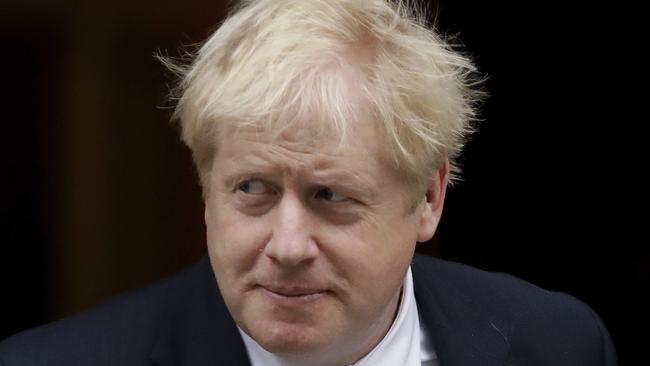
Leaders
Don't miss out on the headlines from Leaders. Followed categories will be added to My News.
Boris Johnson is confident he can get the votes to pass his Brexit deal, which was signed off by the EU overnight.
The UK Prime Minister was on the cusp of a historic deal that just a few days ago appeared impossible.
But now he must convince the UK parliament to pass the deal on a Super Saturday vote, but he remains at least 35 votes short.
However Mr Johnson said overnight he believed he could get it done.
“I am very confident that when my colleagues in parliament study this agreement that they will want to vote for it on Saturday and in succeeding days,” he said.
“We’ve been at this now, as I say, for three and a half years. It hasn’t always been an easy experience for the UK. It’s been long, it’s been painful, it’s been divisive.
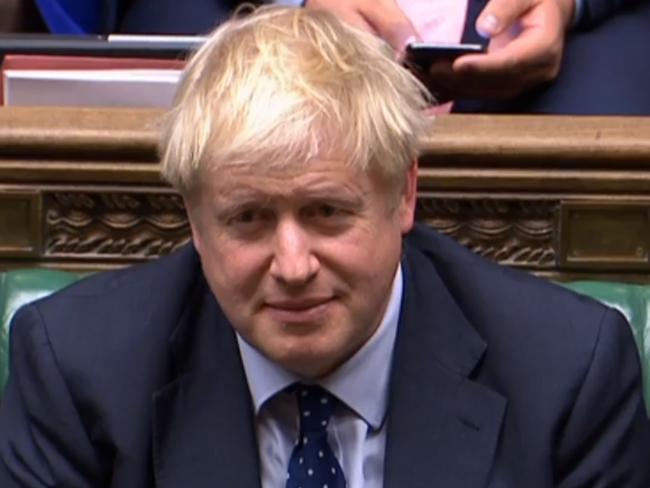
“And now is the moment for us as a country to come together. Now is the moment for our parliamentarians to come together and get this thing done.”
The Democratic Unionist Party has indicated it does not support the deal, and its votes could be the canary in the coal mine for other hardliners who wanted a clean break from the European Union.
They were worried about plans to keep Northern Ireland under EU customs rules and pay EU Value Added Tax, the equivalent to Australia’s GST.
There were also 21 MPs that Mr Johnson had kicked out of his party for voting against his no-deal plans.
Mr Johnson may put out an olive branch to let them back in, and give the chance to run under the Conservative Party banner at an expected election, to win back their votes.
“What I will say is I do think there is a very good case for voting for this deal on all sides of the House and we will certainly be taking that vote very seriously,” Mr Johnson added.
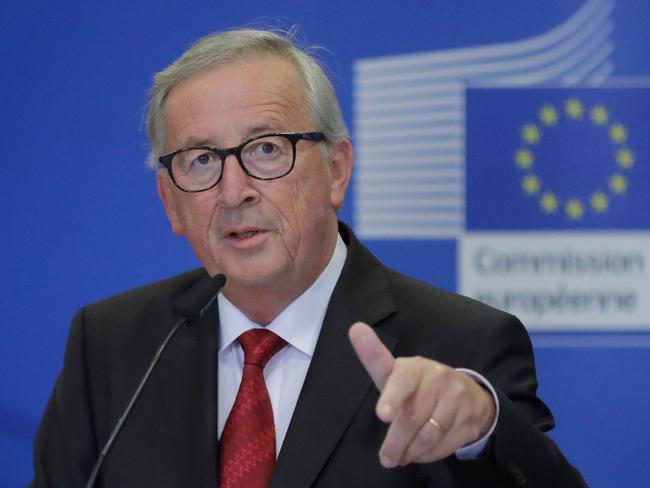
The European Union turned the screws on Britain overnight, with Jean-Claude Juncker saying there would be no further extensions.
“We have concluded a deal and so there is not an argument for further delay — it has to be done now,” the European Commission president added.
A spokesman later softened the EU’s position, as it was possible that the UK would seek an extension and sign off on the deal on Saturday.
Jeremy Corbyn was quick to dismiss the PM’s agreement, criticising it for creating a customs border in the Irish Sea.
“As it stands we cannot support this deal,” the Labour leader said.
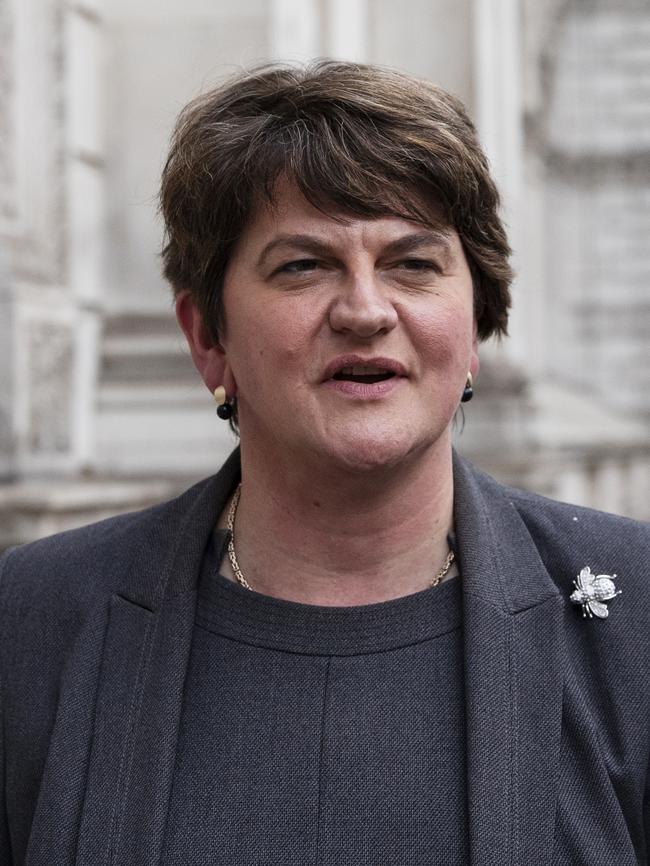

Northern Ireland’s Democratic Unionist Party (DUP) earlier said it could not support Mr Johnson’s current plan.
The support of the DUP, which backs Mr Johnson’s government, is crucial.
“As things stand, we could not support what is being suggested on customs and consent issues, and there is a lack of clarity on VAT (value added tax),” the DUP said in a brief Twitter statement.
“We will continue to work with the government to try and get a sensible deal that works for Northern Ireland and protects the economic and constitutional integrity of the United Kingdom.”
Pro-Brexit Conservative British politician David Davis previously said success in passing a Brexit deal rests on the stance of the DUP.
“If the DUP says ‘This is intolerable to us’ that will be quite important,” he said.
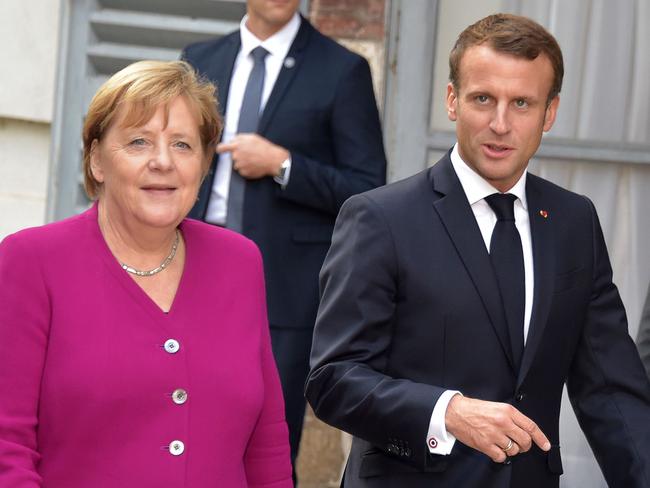
French president Emmanuel Macron said he was “reasonably confident it can be ratified by a vote of the British parliament”.
The great recliner Jacob Rees-Mogg, Leader of the House of Commons, was busy shoring up support for a deal among Conservative MPs.
Mr Johnson needs 320 votes to pass his deal, but was at least 61 votes short after he split the Conservative Party when he kicked out 21 MPs who voted against his plans for a no-deal Brexit.
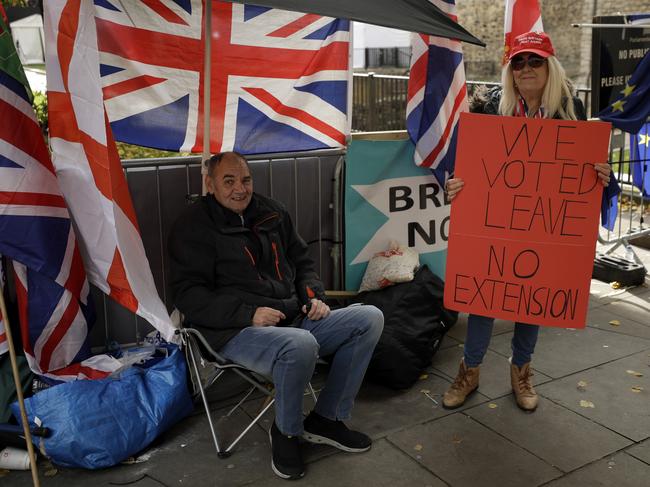
There could be at least 19 Labour MPs who cross the floor, sick and tired of their leader Jeremy Corbyn’s splinter-inducing fence sitting position on the issue.
Mr Johnson will also need the support of Northern Ireland’s Democratic Unionist Party, whose votes will be crucial because they face a crisis if Brexit causes a flare in violence on the Irish border.
There will only be five hours to debate on Saturday, which some MPs have claimed was too short for such a landmark decision.
The chances of a Brexit extension continue to grow, with UK politicians likely to put a compromise position by saying it agreed to the deal but wanted more time to review the details.
Mr Johnson remains legally obliged to seek a Brexit extension to January 31 if a deal cannot be reached by Saturday, October 19.
The “Surrender Act” which demands the extension, also spells out the wording of the letter he must send.
Meanwhile, Brexit fatigue has kicked in, with the politics obsessed Sky News UK launching a Brexit-free pop up channel for viewers sick of hearing about the minutiae of the negotiations sparked by the 2016 referendum.
Following Thursday’s announcement of a deal, all eyes will be on London to see whether Mr Johnson has enough support to push through the agreement in parliament.
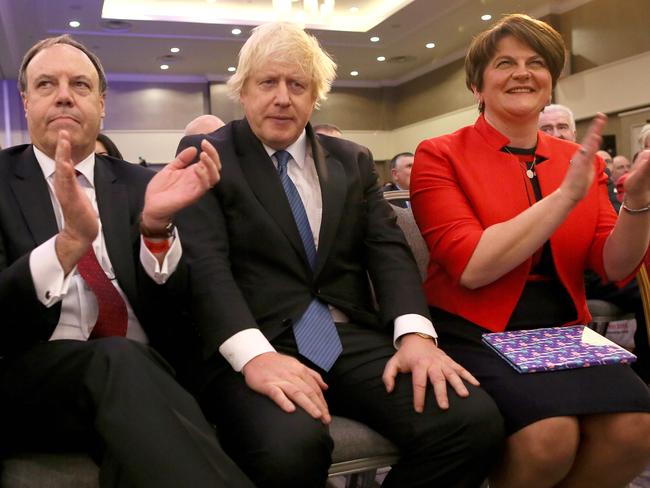
INITIAL DETAILS OF NEW BREXIT DEAL
On Thursday, initial details of the new Brexit deal’s approach to the Irish border issue were revealed.
Northern Ireland remains in the UK’s customs territory but EU procedures will apply to goods arriving there. Customs checks in Ireland will be done in ports. For goods crossing from Great Britain to Northern Ireland that are deemed to be staying there, no EU tariff will apply.
No EU tariffs would be paid on personal goods carried by travellers across the Irish frontier and for a second category of exempted goods that can only be for immediate consumption rather than subsequent processing.
The UK will be allowed to reimburse excise duties for companies in Northern Ireland as long as it does not undercut EU state aid rules.
Northern Ireland will be able to benefit from future UK trade deals around the world. As long as the goods do not cross to Ireland and the EU’s single market, only UK customs tariffs will apply.

The Northern Irish assembly will have to give consent after Brexit for the region’s continued alignment with the EU regulatory regime.
Four years after Brexit, the assembly will have to decide by simple majority of those taking part in the vote whether to apply it. If the vote is positive, the system is extended for another four years.
If another vote then is positive with cross-community support, the system is extended by another eight years until another vote.
If consent is not granted, there is a two-year cooling off period during which sides need to find a new solution to prevent the return of a hard border on the island of Ireland.
If the regional assembly does not sit or vote, the system continues as the default position.
Unlike the “backstop” solution in the original deal, rejected by the British parliament, this system would not be replaced by a new free-trade deal between Britain and the EU.
Originally published as Jean-Claude Juncker recommends EU back new Brexit deal
